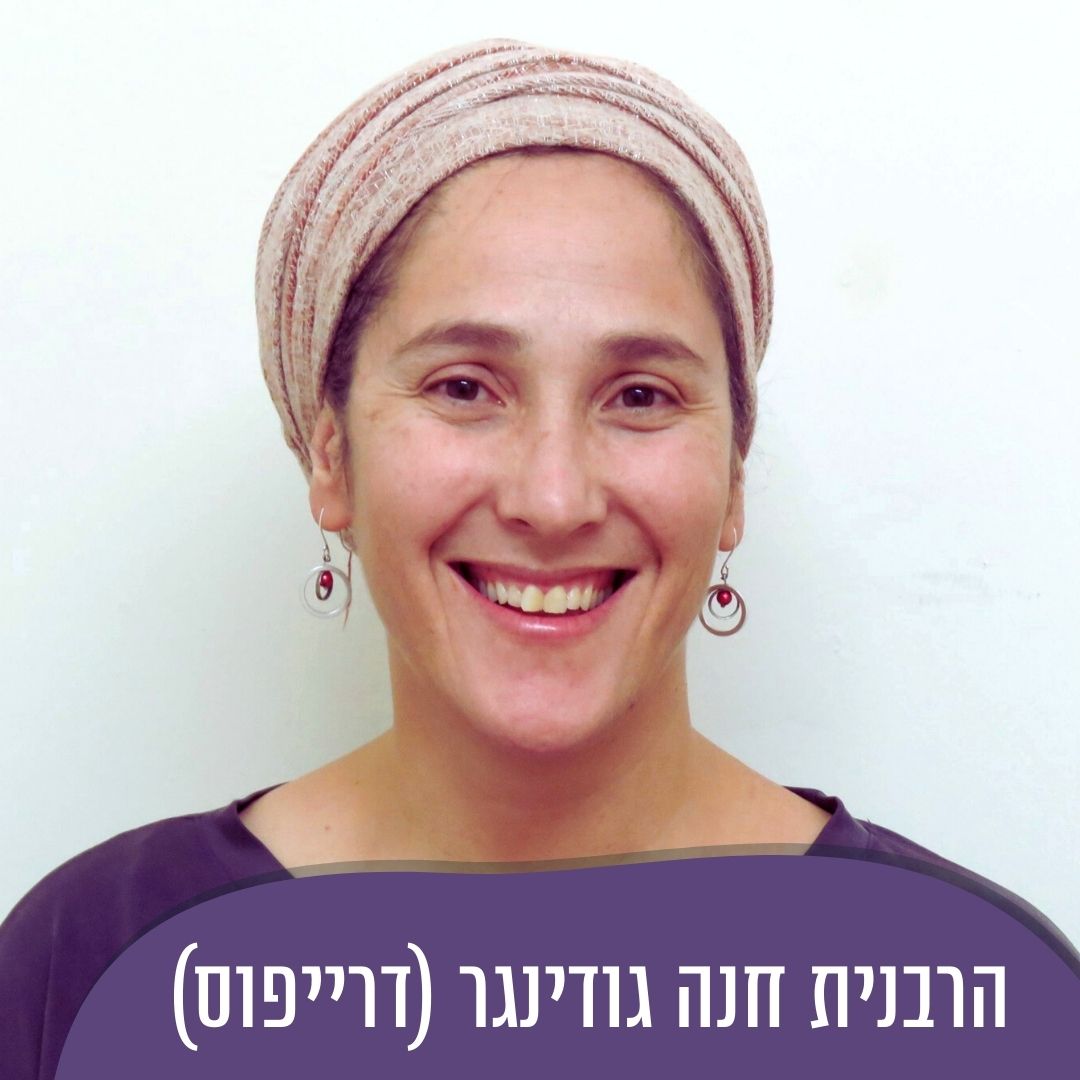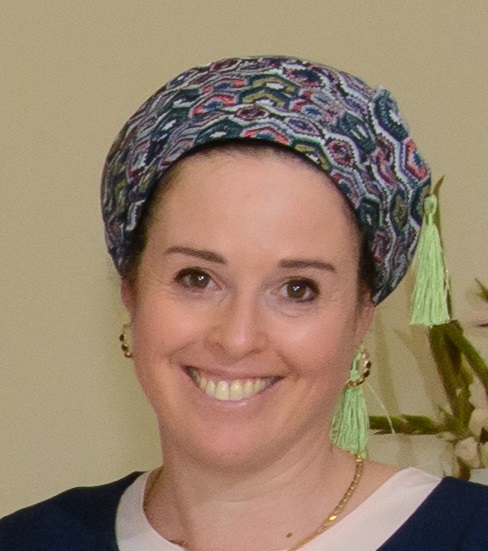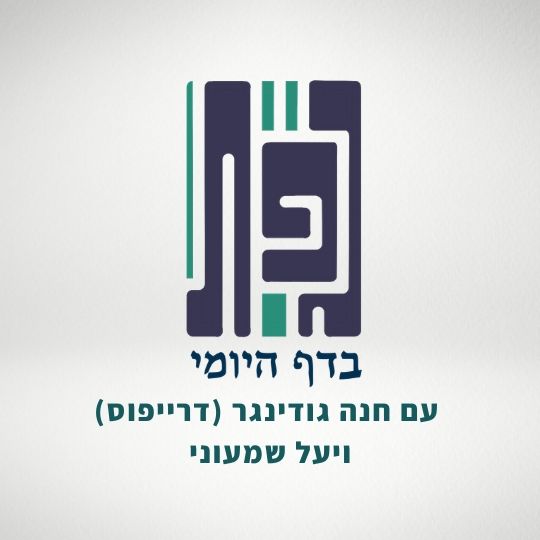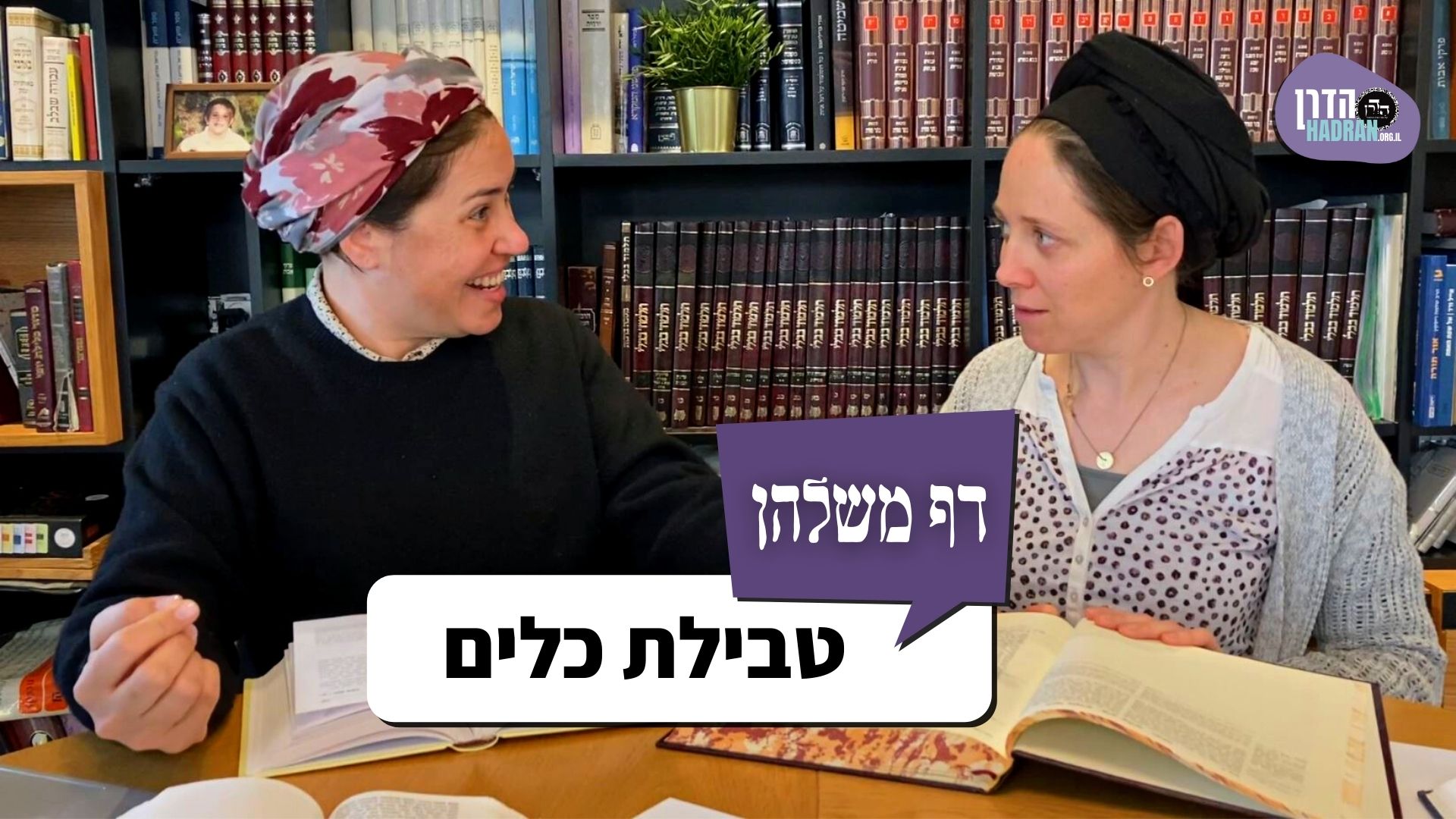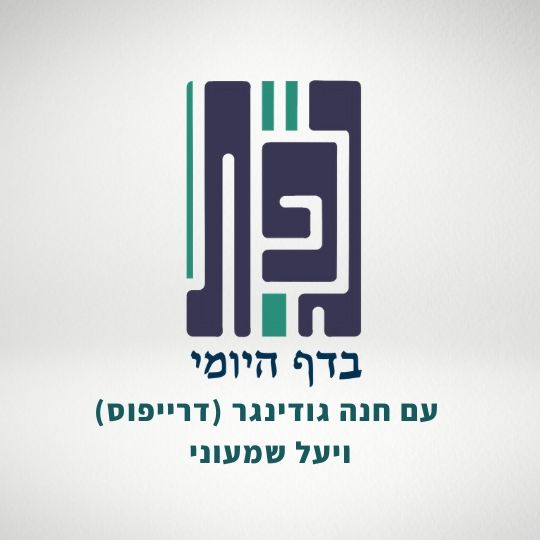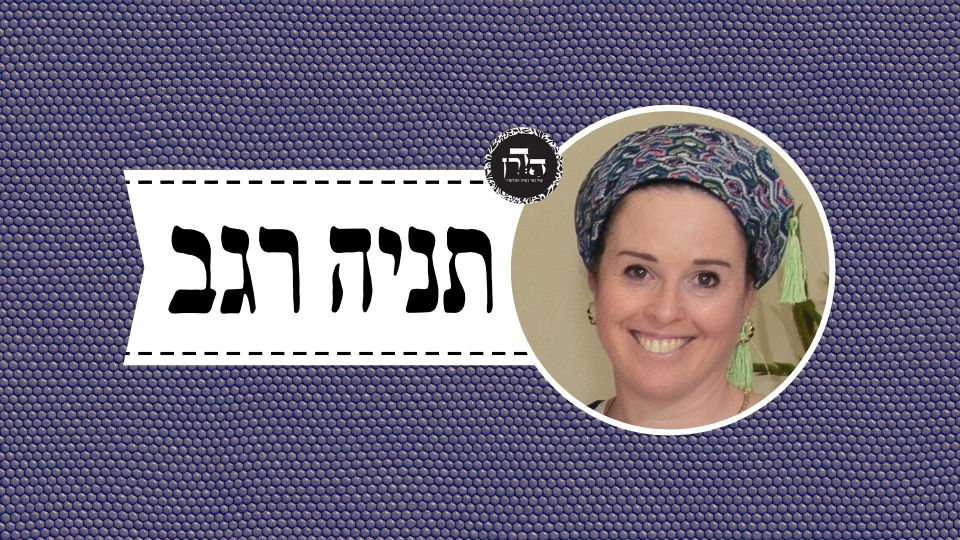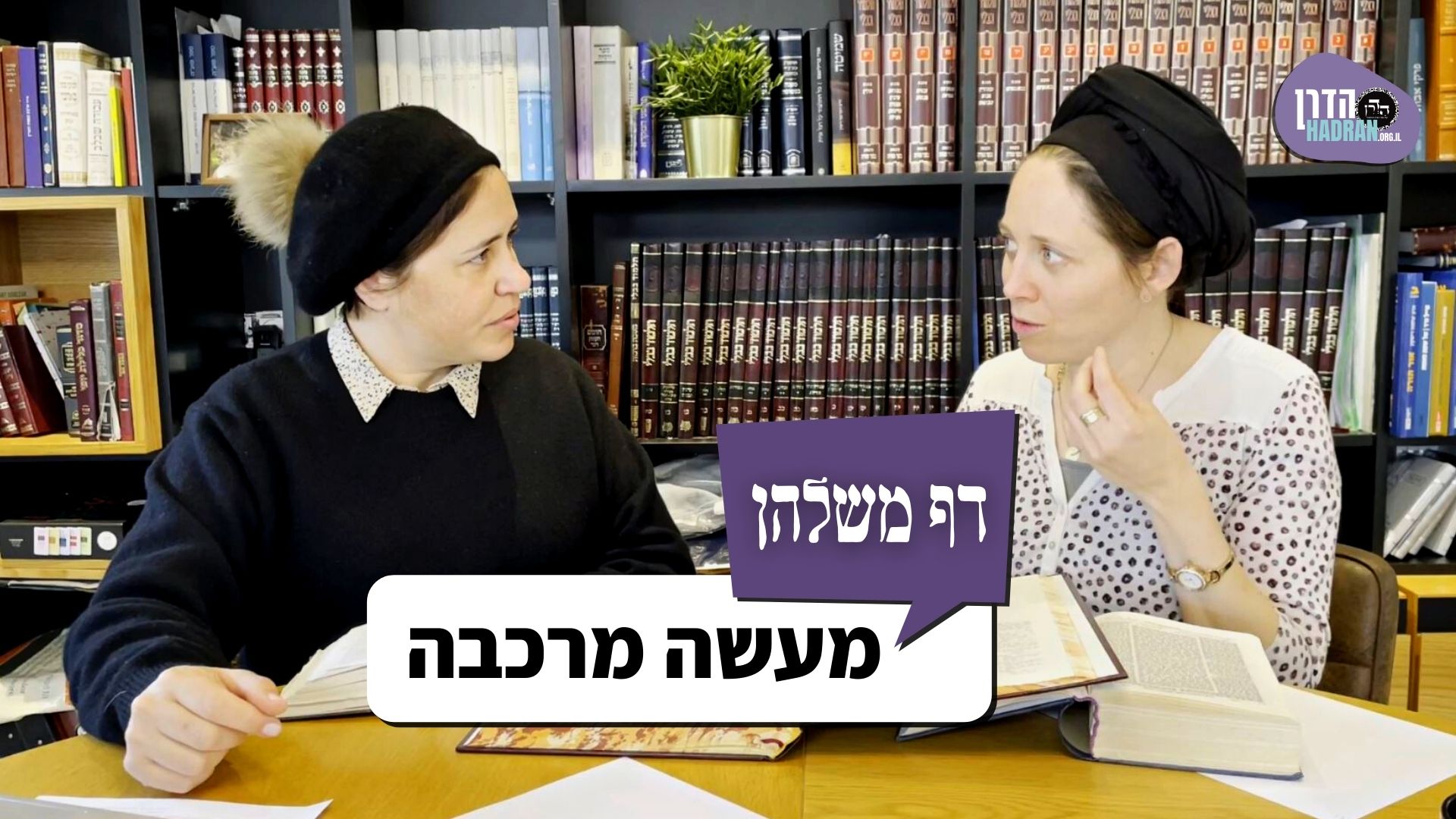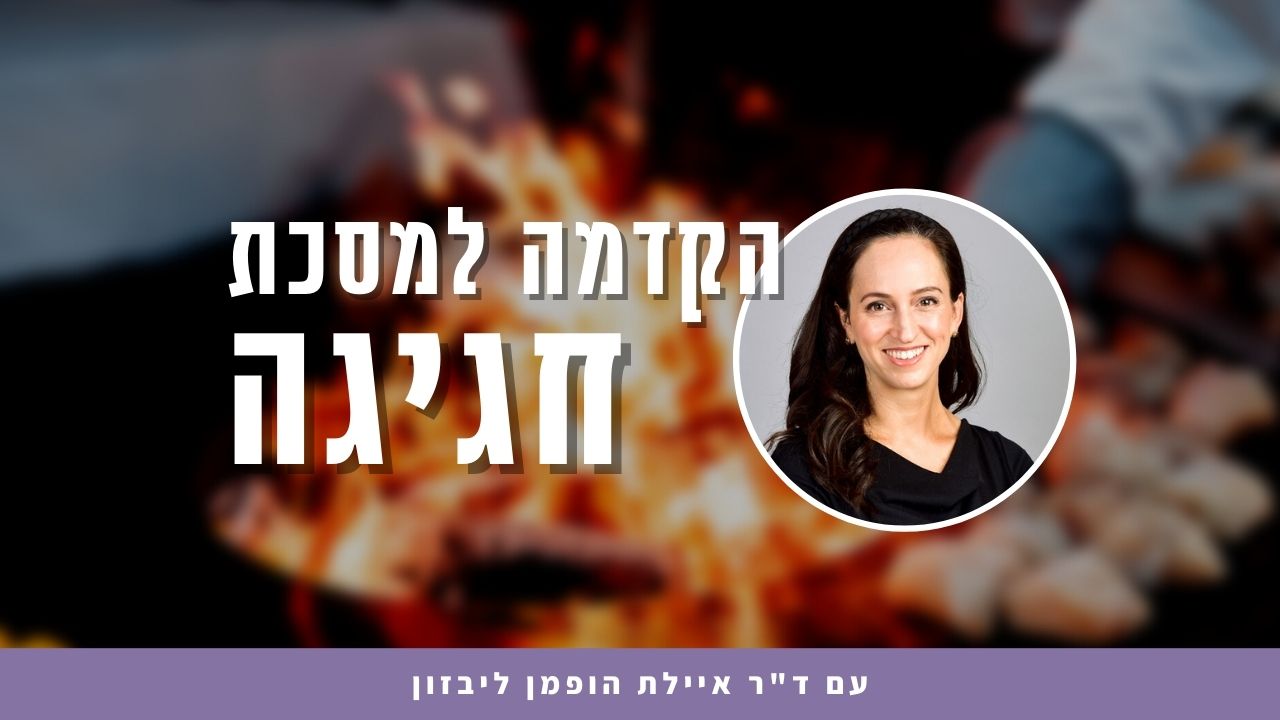חגיגה י
בְּאוֹנֶס, כָּאן בְּרָצוֹן. וְאִיבָּעֵית אֵימָא הָא וְהָא בְּאוֹנֶס, וְלָא קַשְׁיָא: כָּאן בְּאֵשֶׁת כֹּהֵן, כָּאן בְּאֵשֶׁת יִשְׂרָאֵל.
with a rape, in which case it is not prohibited for the woman to return to her husband. There, it is referring to a woman who had relations willfully, and therefore she is forbidden to her husband. And if you wish, say that this and that are both dealing with a rape, and it is still not difficult. Here, where the transgression cannot be rectified, it is referring to one who raped the wife of a priest, as it is forbidden for a priest to have relations with his wife once she has intercourse with any other man, even unwillingly. There, it is referring to one who raped the wife of an Israelite, in which case there is no prohibition against her returning to her husband.
״וְלַיּוֹצֵא וְלַבָּא אֵין שָׁלוֹם״, אָמַר רַב: כֵּיוָן שֶׁיּוֹצֵא אָדָם מִדְּבַר הֲלָכָה לִדְבַר מִקְרָא — שׁוּב אֵין לוֹ שָׁלוֹם.
Since the Gemara mentioned a Torah scholar who abandons the study of Torah, it cites a relevant verse: “Neither was there any peace to him that went out or came in due to the adversary” (Zechariah 8:10). Rav said: Once a person leaves the study of halakha, i.e., Mishna and Gemara, even for the study of the Torah itself, he will no longer have peace. The verses of the Torah are often obscure and it is difficult to learn halakha directly from them without the aid of the interpretations of the Talmud.
וּשְׁמוּאֵל אָמַר: זֶה הַפּוֹרֵשׁ מִתַּלְמוּד לְמִשְׁנָה. וְרַבִּי יוֹחָנָן אָמַר: אֲפִילּוּ מִתַּלְמוּד לְתַלְמוּד.
And Shmuel said: This is referring to one who leaves the study of Talmud to learn Mishna. Whereas the reasoning of the Talmud is relatively clear, the Mishna cites legal rulings without explaining their reasoning. And Rabbi Yoḥanan said: The verse applies even to one who leaves the study of one Talmud for the other Talmud, i.e., who leaves off his study of the Jerusalem Talmud to begin the Babylonian Talmud, as he will encounter difficulties with the new style of learning.
מַתְנִי׳ הֶיתֵּר נְדָרִים — פּוֹרְחִין בָּאֲוִיר וְאֵין לָהֶם עַל מָה שֶׁיִּסָּמֵכוּ.
MISHNA: Incidental to the Festival peace-offering, the mishna describes the nature of various areas of Torah study. The halakhot of the dissolution of vows, when one requests from a Sage to dissolve them, fly in the air and have nothing to support them, as these halakhot are not mentioned explicitly in the Torah. There is only a slight allusion to the dissolution of vows in the Torah, which is taught by the Sages as part of the oral tradition.
הִלְכוֹת שַׁבָּת, חֲגִיגוֹת וְהַמְּעִילוֹת — הֲרֵי הֵם כַּהֲרָרִים הַתְּלוּיִן בִּשְׂעָרָהּ, שֶׁהֵן מִקְרָא מוּעָט וַהֲלָכוֹת מְרוּבּוֹת. הַדִּינִין וְהָעֲבוֹדוֹת הַטְּהָרוֹת וְהַטְּמָאוֹת וַעֲרָיוֹת — יֵשׁ לָהֶן עַל מָה שֶׁיִּסָּמֵכוּ, וְהֵן הֵן גּוּפֵי תוֹרָה.
The halakhot of Shabbat, Festival peace-offerings, and misuse of consecrated property are like mountains suspended by a hair, as they have little written about them in the Torah, and yet the details of their halakhot are numerous. The details of monetary law, sacrificial rites, ritual purity and impurity, and the halakhot of those with whom relations are forbidden all have something to support them, i.e., there is ample basis in the Torah for these halakhot, and these are the essential parts of Torah.
גְּמָ׳ תַּנְיָא, רַבִּי אֱלִיעֶזֶר אוֹמֵר: יֵשׁ לָהֶם עַל מָה שֶׁיִּסָּמֵכוּ, שֶׁנֶּאֱמַר: ״כִּי יַפְלִיא״ ״כִּי יַפְלִיא״ שְׁתֵּי פְּעָמִים: אַחַת הַפְלָאָה לְאִיסּוּר, וְאַחַת הַפְלָאָה לְהֶיתֵּר.
GEMARA: It is taught in a baraita that Rabbi Eliezer said: The halakhot of the dissolution of vows have something to support them, as it is stated: “When a man shall clearly utter a vow” (Leviticus 27:2), and: “When either man or woman shall clearly utter a vow” (Numbers 6:2), i.e., the words “clearly utter” appear twice. One clear utterance is for prohibition, i.e., when one states his intention to accept the vow, and one clear utterance is for dissolution, when he provides the Sage with a reason why the vow should no longer apply. This is an allusion in the Torah to the annulment of vows.
רַבִּי יְהוֹשֻׁעַ אוֹמֵר: יֵשׁ לָהֶם עַל מָה שֶׁיִּסָּמֵכוּ, שֶׁנֶּאֱמַר: ״אֲשֶׁר נִשְׁבַּעְתִּי בְאַפִּי״ — בְּאַפִּי נִשְׁבַּעְתִּי, וְחָזַרְתִּי בִּי.
Rabbi Yehoshua likewise says: These halakhot have something to support them, as it is stated: “Wherefore I swore in My wrath” (Psalms 95:11), meaning: In my wrath I swore, and I retracted. This is the basis for the dissolution of vows, in which the one who uttered the vow tells the Sage that he regrets it, as he did so in a moment of anger.
רַבִּי יִצְחָק אוֹמֵר: יֵשׁ לָהֶם עַל מָה שֶׁיִּסָּמֵכוּ, שֶׁנֶּאֱמַר: ״כֹּל נְדִיב לִבּוֹ״. חֲנַנְיָה בֶּן אֲחִי רַבִּי יְהוֹשֻׁעַ אוֹמֵר: יֵשׁ לָהֶם עַל מָה שֶׁיִּסָּמֵכוּ, שֶׁנֶּאֱמַר: ״נִשְׁבַּעְתִּי וָאֲקַיֵּימָה לִשְׁמוֹר מִשְׁפְּטֵי צִדְקֶךָ״.
Rabbi Yitzḥak says: These halakhot have something to support them, as it is stated: “Whoever is of a willing heart, let him bring it” (Exodus 35:5). This verse indicates that as long as one retains the same desire to fulfill the vow, he must continue to fulfill it, but if he regrets taking the vow he may arrange for it to be dissolved. Ḥananya, son of Rabbi Yehoshua’s brother, also says: They have something to support them, as it is stated: “I have sworn, and have fulfilled it, to observe your righteous ordinances” (Psalms 119:106). This verse indicates that certain oaths need not be fulfilled, i.e., those that have been dissolved.
אָמַר רַב יְהוּדָה אָמַר שְׁמוּאֵל: אִי הֲוַאי הָתָם, אָמְרִי לְהוּ: דִּידִי עֲדִיפָא מִדִּידְכוּ — שֶׁנֶּאֱמַר: ״לֹא יַחֵל דְּבָרוֹ״ — הוּא אֵינוֹ מוֹחֵל, אֲבָל אֲחֵרִים מוֹחֲלִין לוֹ. אָמַר רָבָא: לְכוּלְּהוּ אִית לְהוּ פִּירְכָא, לְבַר מִדִּשְׁמוּאֵל דְּלֵית לֵיהּ פִּירְכָא.
Rav Yehuda said that Shmuel said: If I had been there, sitting with those Sages, I would have said to them: My source is better than yours, as it is stated: “He shall not nullify his word” (Numbers 30:3), from which it may be inferred: He himself cannot nullify his word; however, others, i.e., a Sage, may nullify it for him by dissolving his vow. Rava said: For all of the suggested sources for the dissolution of vows there is a possible refutation, except for that of Shmuel, for which there is no refutation.
דְּאִי מִדְּרַבִּי אֱלִיעֶזֶר — דִּלְמָא כִּדְרַבִּי יְהוּדָה שֶׁאָמַר מִשּׁוּם רַבִּי טַרְפוֹן. דְּתַנְיָא, רַבִּי יְהוּדָה אוֹמֵר מִשּׁוּם רַבִּי טַרְפוֹן: לְעוֹלָם אֵין אֶחָד מֵהֶם נָזִיר, שֶׁלֹּא נִיתְּנָה נְזִירוּת אֶלָּא לְהַפְלָאָה.
Rava elaborates. As, if it is derived from the statement of Rabbi Eliezer, perhaps the phrase: “Clearly utter” should be understood in accordance with the opinion of Rabbi Yehuda, who said an alternative interpretation in the name of Rabbi Tarfon. As it is taught in a baraita with regard to two people who are arguing whether or not someone who passed before them is a nazirite, each of them declaring that if he is correct he himself will become a nazirite, Rabbi Yehuda says in the name of Rabbi Tarfon: Actually, neither of them is a nazirite, as naziriteship is effected only by means of a clear utterance and neither party is certain they will be a nazirite at the time of their utterance. He derives this halakha from this phrase: “Clearly utter.”
אִי מִדְּרַבִּי יְהוֹשֻׁעַ — דִּלְמָא הָכִי קָאָמַר: בְּאַפִּי נִשְׁבַּעְתִּי — וְלָא הָדַרְנָא בִּי. אִי מִדְּרַבִּי יִצְחָק — דִּלְמָא לְאַפּוֹקֵי מִדִּשְׁמוּאֵל. דְּאָמַר שְׁמוּאֵל: גָּמַר בְּלִבּוֹ — צָרִיךְ שֶׁיּוֹצִיא בִּשְׂפָתָיו, וְהָא קָא מַשְׁמַע לַן: דְּאַף עַל גַּב דְּלֹא הוֹצִיא בִּשְׂפָתָיו.
Similarly, if it is derived from the statement of Rabbi Yehoshua, perhaps this is what the verse is saying: In my wrath I swore and I do not take it back, despite the fact that it was stated in a moment of anger. If it is derived from the statement of Rabbi Yitzḥak, perhaps the phrase “a willing heart” comes to exclude the statement of Shmuel, as Shmuel said: If one decided in his heart but did not verbalize a vow, it is insufficient, as he must verbally express it. And therefore this phrase teaches us that even though he did not verbally express the vow he is still obligated to fulfill it.
אִי מִדַּחֲנַנְיָה בֶּן אֲחִי רַבִּי יְהוֹשֻׁעַ — דִּלְמָא כְּרַב גִּידֵּל אָמַר רַב. דְּאָמַר רַב גִּידֵּל אָמַר רַב: מִנַּיִן שֶׁנִּשְׁבָּעִין לְקַיֵּים אֶת הַמִּצְוָה — שֶׁנֶּאֱמַר: ״נִשְׁבַּעְתִּי וָאֲקַיֵּימָה לִשְׁמוֹר מִשְׁפְּטֵי צִדְקֶךָ״.
Finally, if it is derived from the statement of Rabbi Ḥananya, son of Rabbi Yehoshua’s brother, perhaps the phrase “and fulfilled it” should be explained in accordance with the opinion of Rav Giddel, who said that Rav said a different interpretation of this verse. As Rav Giddel said that Rav said: From where is it derived that although one is already obligated to fulfill all mitzvot one may take an oath to fulfill a mitzva, and this is not considered an oath taken in vain? As it is stated: “I have sworn, and have fulfilled it, to observe Your righteous ordinances” (Psalms 119:106).
אֶלָּא דִּשְׁמוּאֵל לֵית לֵיהּ פִּירְכָא. אָמַר רָבָא, וְאִיתֵּימָא רַב נַחְמָן בַּר יִצְחָק: הַיְינוּ דְּאָמְרִי אִינָשֵׁי: טָבָא חֲדָא פִּלְפַּלְתָּא חֲרִיפְתָּא מִמְּלֵי צַנָּא דְקָרֵי.
Rav concludes. However, for Shmuel’s source there is no refutation. Rava said, and some say it was Rav Naḥman bar Yitzḥak who said: This explains the folk saying that people say: One spicy pepper is better than a basketful of squash, as the single pepper has more flavor than all the squash combined.
הִלְכוֹת שַׁבָּת. מִיכְתָּב כְּתִיבָן! לָא צְרִיכָא, לְכִדְרַבִּי אַבָּא. דְּאָמַר רַבִּי אַבָּא: הַחוֹפֵר גּוּמָּא בְּשַׁבָּת וְאֵין צָרִיךְ אֶלָּא לַעֲפָרָהּ — פָּטוּר עָלֶיהָ.
§ The mishna stated that the halakhot of Shabbat are like mountains suspended by a hair. The Gemara asks: But the halakhot of Shabbat are written, i.e., the prohibition against performing labor is explicit in the Torah. The Gemara answers: No, it is necessary to say this in accordance with the opinion of Rabbi Abba. As Rabbi Abba said: One who digs a hole on Shabbat only because he needs its dirt and not for the hole itself is exempt from liability for that act, as this is not the labor of digging prohibited on Shabbat by Torah law.
כְּמַאן — כְּרַבִּי שִׁמְעוֹן, דְּאָמַר: מְלָאכָה שֶׁאֵינָהּ צְרִיכָה לְגוּפָהּ — פָּטוּר עָלֶיהָ.
The Gemara asks: In accordance with whose opinion did Rabbi Abba issue this ruling? It is in accordance with the opinion of Rabbi Shimon, who said: One who performs on Shabbat a labor that is not necessary for its own sake, i.e., he performs the labor for a purpose other than the direct result of the action, is exempt from liability for it.
אֲפִילּוּ תֵּימָא לְרַבִּי יְהוּדָה: הָתָם מְתַקֵּן, הָכָא מְקַלְקֵל הוּא.
The Gemara offers an alternative possibility. This ruling can be explained even if you say that Rabbi Abba holds in accordance with the opinion of Rabbi Yehuda, that one is liable for a labor that is not necessary for its own sake. There, in other cases, Rabbi Yehuda deems one liable because his purpose is creative. Here, where one is digging the hole for the dirt, the purpose is destructive, as the action damages the ground. Therefore, Rabbi Yehuda concedes that in this case he is exempt.
מַאי ״כַּהֲרָרִין הַתְּלוּיִין בִּשְׂעָרָה״?
The Gemara returns to the mishna. What then does the mishna mean by the phrase: Like mountains suspended by a hair?
מְלֶאכֶת מַחְשֶׁבֶת אָסְרָה תּוֹרָה, וּמְלֶאכֶת מַחְשֶׁבֶת לָא כְּתִיבָא.
The Gemara answers: The Torah prohibited only planned, creative labor on Shabbat. An act of labor that is not intended, or whose result is unintended, or whose consequence is destructive, is not included in this category. Therefore, one who performs labor in this manner is exempt. And limitation of the prohibition against creative labor is not written anywhere in the Torah with regard to the laws of Shabbat. Admittedly, this principle is written in connection with the Tabernacle, and there is an established exegetical link between the building of the Tabernacle and Shabbat. Nevertheless, as this fundamental principle concerning the halakhot of Shabbat does not appear explicitly, it is compared to mountains suspended by a hair.
חֲגִיגוֹת. מִיכְתָּב כְּתִיבָן! לָא צְרִיכָא, לִכְדַאֲמַר לֵיהּ רַב פָּפָּא לְאַבָּיֵי: מִמַּאי דְּהַאי ״וְחַגּוֹתֶם אוֹתוֹ חַג לַה׳״ — זְבִיחָה? דִּלְמָא ״חוֹגּוּ חַגָּא״ קָאָמַר רַחֲמָנָא!
§ The mishna taught that the halakhot of Festival peace-offerings are like mountains suspended by a hair. The Gemara asks: But they are written in the Torah. The Gemara answers: No, it is necessary to say this in accordance with that which Rav Pappa said to Abaye: From where is it derived that this verse: “And you shall celebrate it as a Festival [veḥagotem] to the Lord” (Leviticus 23:41), is referring to an animal offering? Perhaps the Merciful One is simply saying: Celebrate a Festival.
אֶלָּא מֵעַתָּה, דִּכְתִיב ״וְיָחוֹגּוּ לִי בַּמִּדְבָּר״, הָכִי נָמֵי דְּחוֹגּוּ חַגָּא הוּא? וְכִי תֵּימָא הָכִי נָמֵי, וְהָכְתִיב: ״וַיֹּאמַר מֹשֶׁה גַּם אַתָּה תִּתֵּן בְּיָדֵינוּ זְבָחִים וְעוֹלוֹת״.
Abaye responded: However, if that is so, consider that it is written: “Let My people go, that they may hold a feast [veyaḥogu] to Me in the wilderness” (Exodus 5:1). So too, the meaning of this verse is that they will merely celebrate a Festival, and not bring an offering. And if you would say that is indeed so, that this means that they should celebrate a Festival, but isn’t it written: “And Moses said: You must also give into our hand sacrifices and burnt-offerings, that we may sacrifice to the Lord our God” (Exodus 10:25)? This shows that the command is referring to offerings.
דִּלְמָא הָכִי קָאָמַר רַחֲמָנָא: ״אִכְלוּ וּשְׁתוּ וְחוֹגּוּ חַגָּא קַמַּאי״? לָא סָלְקָא דַּעְתָּךְ, דִּכְתִיב: ״וְלֹא יָלִין חֵלֶב חַגִּי עַד בֹּקֶר״, וְאִי סָלְקָא דַעְתָּךְ דְּחוֹגָּא הוּא, תַּרְבָּא לְחַגָּא אִית לֵיהּ?!
The Gemara raises a difficulty. But perhaps this is what the Merciful One said: Slaughter animals so that you can eat, drink, and celebrate a Festival before Me, but no offerings are necessary. The Gemara answers: This cannot enter your mind, as it is written: “The fat of My Festival feast [ḥagi] shall not remain all night until the morning” (Exodus 23:18). And if it enters your mind to say that it is referring to a regular Festival feast and not an offering, does a Festival feast have forbidden fats?
וְדִלְמָא הָכִי קָאָמַר רַחֲמָנָא: חֵלֶב הַבָּא בִּזְמַן חַג — ״לֹא יָלִין״!
The Gemara asks: But perhaps this is what the Merciful One states in the Torah: The fats of gift offerings that are brought during a Festival may not remain all night. If so, the phrase “My Festival feast” is not referring to a type of offering at all, but to a particular time.
אֶלָּא מֵעַתָּה: הַבָּא בִּזְמַן חַג — הוּא דְּלֹא יָלִין, הָא דְּכׇל הַשָּׁנָה כּוּלָּהּ — יָלִין?! ״כׇּל הַלַּיְלָה עַד הַבֹּקֶר״, כְּתִיב!
The Gemara answers: However, if that is so, this verse indicates that it is only those fats that are brought during a Festival that may not remain overnight. It may be inferred from here that fats which are brought throughout the year may remain all night. But it is written about burnt-offerings: “On its firewood upon the altar all night into the morning” (Leviticus 6:2). This shows that burnt-offerings must burn upon the altar all night.
דִּלְמָא אִי מֵהָהוּא, הֲוָה אָמֵינָא: הָהוּא לַעֲשֵׂה כְּתַב רַחֲמָנָא, הַאי לְלָאו!
The Gemara further asks: Perhaps if this halakha was derived from that verse, I would say that verse serves as the source of a positive mitzva. Therefore, the Merciful One writes this verse: “Shall not remain all night,” as a prohibition as well.
לְלָאו כְּתַב קְרָא אַחֲרִינָא: ״וְלֹא יָלִין מִן הַבָּשָׂר אֲשֶׁר תִּזְבַּח בָּעֶרֶב בַּיּוֹם הָרִאשׁוֹן לַבֹּקֶר״. וְדִלְמָא לַעֲבוֹר עָלָיו בִּשְׁנֵי לָאוִין וַעֲשֵׂה!
The Gemara responds. With regard to the prohibition against leaving over an offering on a Festival, another verse was written: “Neither shall any of the flesh, which you sacrifice the first day at evening, remain all night until the morning” (Deuteronomy 16:4). The Gemara asks: But perhaps the verse: “Shall not remain all night” comes to teach that one who does so violates two prohibitions and a positive mitzva.
אֶלָּא: אָתְיָא ״מִדְבָּר״ ״מִדְבָּר״. כְּתִיב הָכָא: ״וְיָחוֹגּוּ לִי בַּמִּדְבָּר״, וּכְתִיב הָתָם: ״הַזְּבָחִים וּמִנְחָה הִגַּשְׁתֶּם לִי בַּמִּדְבָּר״, מָה לְהַלָּן זְבָחִים — אַף כָּאן זְבָחִים.
Rather, the Gemara rejects this explanation in favor of the claim that the source for a Festival peace-offering comes from a verbal analogy between the term “wilderness” stated here and the term: “wilderness” stated elsewhere. It is written here: “They shall make an offering to Me in the wilderness” (Exodus 5:1), and it is written there: “Did you bring to Me sacrifices and offerings forty years in the wilderness, house of Israel?” (Amos 5:25). Just as there it is referring to actual animal offerings, so too here, it is referring to animal offerings, not merely the celebration of a Festival.
וּמַאי ״כַּהֲרָרִין הַתְּלוּיִין בִּשְׂעָרָה״ — דִּבְרֵי תוֹרָה מִדִּבְרֵי קַבָּלָה לָא יָלְפִינַן.
The Gemara asks: And in light of this verbal analogy, in what way is this halakha like mountains suspended by a hair? The Gemara answers: The textual evidence is not that strong, as generally one does not derive Torah matters from texts of the tradition, i.e., Prophets and Writings. Since the prophets were not permitted to introduce new halakhot, as the Torah is the only authoritative source in that regard, this verbal analogy does not carry the same weight as a halakha derived from the Torah itself.
מְעִילוֹת. מִיכְתָּב כְּתִיבָן! אָמַר רָמֵי בַּר חָמָא: לֹא נִצְרְכָא אֶלָּא לִכְדִתְנַן: הַשָּׁלִיחַ שֶׁעָשָׂה שְׁלִיחוּתוֹ — בַּעַל הַבַּיִת מָעַל, לֹא עָשָׂה שְׁלִיחוּתוֹ — שָׁלִיחַ מָעַל.
§ The mishna taught that the details of the halakhot of misuse of consecrated property are like mountains suspended by a hair. The Gemara asks: But they are written in the Torah (Leviticus 5:14–16). Rami bar Ḥama said: This statement is necessary only for that which we learned in a mishna (Me’ila 20a): With regard to an agent who performs his agency, e.g., when a homeowner sends someone to buy an object with consecrated money and the agent does as he was instructed, the homeowner has misused consecrated property and must bring an offering for the actions of the agent performed on his behalf. However, if the agent did not perform his agency, but in some way acted on his own account, the agent has misused consecrated property, and he is the one obligated to bring the offering.
וְכִי עָשָׂה שְׁלִיחוּתוֹ, אַמַּאי מָעַל? וְכִי זֶה חוֹטֵא וְזֶה מִתְחַיֵּיב? הַיְינוּ כַּהֲרָרִין הַתְּלוּיִין בִּשְׂעָרָה.
The Gemara explains: And when he performed his agency, why is the owner considered to have misused consecrated property? And is it possible that this one sins and that one is rendered liable? Since this halakha is counterintuitive, it is not apparent from the verses. This is what the mishna was referring to when it said that these halakhot are like mountains suspended by a hair.
אָמַר רָבָא: וּמַאי קוּשְׁיָא? דִּלְמָא שָׁאנֵי מְעִילָה דְּיָלְפָא ״חֵטְא״ ״חֵטְא״ מִתְּרוּמָה, מָה הָתָם שְׁלוּחוֹ שֶׁל אָדָם כְּמוֹתוֹ — אַף כָּאן שְׁלוּחוֹ שֶׁל אָדָם כְּמוֹתוֹ?
Rava said: And what is the logical difficulty with this halakha? Perhaps the transgression of misuse of consecrated property is different, as it is derived through a verbal analogy from the parallel term “sin” (Leviticus 5:6) and “sin” (Numbers 18:9), from the case of teruma: Just as there, with regard to teruma, the legal status of a person’s agent is like that of himself, and therefore the agent may separate teruma on behalf of the owner of the produce, so too here, with regard to misuse of consecrated property, the legal status of a person’s agent is like that of himself, which means that when the agent properly performs his agency the owner is liable.
אֶלָּא אָמַר רָבָא: לֹא נִצְרְכָא אֶלָּא לְכִדְתַנְיָא: נִזְכַּר בַּעַל הַבַּיִת וְלֹא נִזְכַּר שָׁלִיחַ — שָׁלִיחַ מָעַל. שָׁלִיחַ עַנְיָא מַאי קָא עָבֵיד? הַיְינוּ כַּהֲרָרִין הַתְּלוּיִין בִּשְׂעָרָה.
Rather, Rava said: The mishna’s statement with regard to mountains is necessary only for that which is taught in a baraita: If, after he sent an agent to use a consecrated object, the homeowner remembered that it was a consecrated item and the agent did not remember, the agent has misused consecrated property despite the fact that he was merely performing his agency. This is because one is liable for the misuse of consecrated property only if he acted unwittingly. In this instance, what did the poor agent do? He simply performed his agency on behalf of the owner, and yet because the owner remembered about the consecrated object, the agent is liable. This is what the mishna is referring to when it says that these halakhot are like mountains suspended by a hair.
אָמַר רַב אָשֵׁי: מַאי קוּשְׁיָא? דִּלְמָא מִידֵּי דְּהָוֵה אַמּוֹצִיא מְעוֹת הֶקְדֵּשׁ לְחוּלִּין!
Rav Ashi said: And what is the logical difficulty with this halakha? Perhaps this is just as it is with regard to one who spends consecrated money for non-sacred purposes. Although this individual did not know that the money was consecrated, he is nevertheless obligated to bring an offering. Here too, once the owner canceled the agency upon realizing the money was consecrated, the agent unwittingly misused consecrated property, and therefore he is liable.
אֶלָּא אָמַר רַב אָשֵׁי: לֹא נִצְרְכָא אֶלָּא לִכְדִתְנַן: נָטַל אֶבֶן אוֹ קוֹרָה שֶׁל הֶקְדֵּשׁ — הֲרֵי זֶה לֹא מָעַל, נְתָנָהּ לַחֲבֵירוֹ — הוּא מָעַל וַחֲבֵירוֹ לֹא מָעַל. מִכְּדֵי מִישְׁקָל שַׁקְלַהּ, מָה לִי הוּא וּמָה לִי חֲבֵירוֹ? הַיְינוּ כַּהֲרָרִין הַתְּלוּיִין בִּשְׂעָרָה.
Rather, Rav Ashi said: The mishna is necessary only for that which we learned in a mishna (Me’ila 19b): If one picked up a consecrated stone or beam, he has not misused consecrated property merely by this action. However, if he gave it to another, he has misused consecrated property and the other person has not misused consecrated property. The Gemara analyzes this case: Since he picked it up, what difference is there to me if he keeps it, and what difference is there to me if he gives it to another? What is the basis for the distinction between the two cases? Rather, this is the case the mishna is referring to when it says that these halakhot are like mountains suspended by a hair.
וּמַאי קוּשְׁיָא? דִּלְמָא כְּדִשְׁמוּאֵל, דְּאָמַר שְׁמוּאֵל: הָכָא
The Gemara raises a difficulty. What is the logical difficulty with this halakha? Perhaps it should be explained in accordance with the opinion of Shmuel, as Shmuel said: Here, this mishna is not referring to an ordinary person who picked up a consecrated stone for himself.

